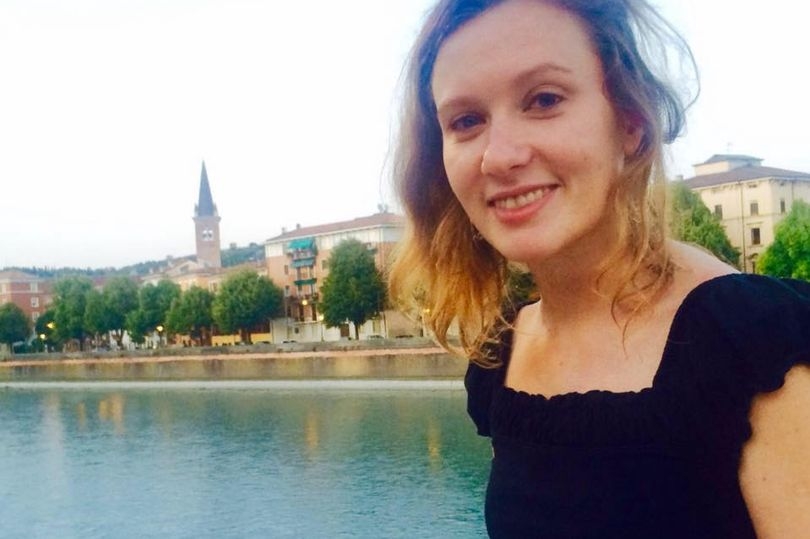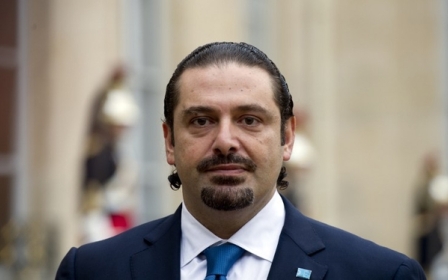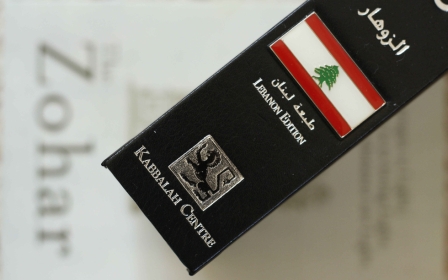Lebanese suspect arrested over death of British embassy worker

Lebanese police have arrested a suspect over the murder of Rebecca Dykes, a British embassy worker, after her body was identified on Sunday.
A senior Lebanese security source said that the man detained on suspicion of murdering Dykes is Lebanese and a driver for Uber and has previous criminal violations for drug use.
The suspect, identified as Tariq H, has confessed to killing Dykes after trying to sexually assault her, a Lebanese judicial official said on Monday.
"The prisoner has confessed that he took advantage of the drunken state of the young woman and he drove towards a highway without her realising. He pulled over in a quiet place," the judicial source told AFP.
"When he began to sexually assault her, she resisted. She was able to escape from the car and started to scream, until he took her back to the car and strangled her," the source added.
An Uber spokesman said in an email: “We are horrified by this senseless act of violence. Our hearts are with the victim and her family. We are working with authorities to assist their investigation in any way they can.”
Dykes, 30, was found on Saturday, having gone missing after a night out with friends on Friday evening.
A senior official said on Sunday that the crime did not appear to be political.
"Our first impression is that it's not politically motivated," said the Lebanese official, who is involved in the investigation, speaking on condition of anonymity.
He could not elaborate on the exact circumstances of her death.
A statement from the Foreign Office and the family provided no further details.
"We are devastated by the loss of our beloved Rebecca. We are doing all we can to understand what happened," the family said in a statement passed on by the Foreign Office.
According to Dykes' social media profiles, she was employed by the UK Department for International Development (DFID) which also issued a statement following confirmation of her death.
"Our thoughts are with Becky's family and friends at this very upsetting time," DFID said, adding that the Foreign Office was working with authorities in Lebanon as the police probe gets underway.
The British Foreign Office said it was in contact with the Lebanese authorities over the incident.
The Lebanese official said her body was found "on the side of the Emile Lahoud road" just north of Beirut on Saturday evening.
A security source said that the British woman's body had been dumped on the roadside and that strangulation was suspected as a possible cause of death because "she was found with a piece of cord around her neck".
The British ambassador to Lebanon, Hugo Shorter, said that the whole embassy is "deeply shocked". In a tweet, he added: "My thoughts are with Becky’s family, friends and colleagues for their tragic loss."
Her body was taken to Dahr al-Bashak hospital for forensic examination by the Lebanese Civil Defence, after she was discovered by police.
A security source told The Daily Star that a second autopsy was underway on Sunday evening to confirm the cause of death. The source added that the first autopsy had found the cause of death as strangulation.
She had previously worked with the British government on Libya and Iraq, according to her LinkedIn profile, and had most recently been working for the Department for International Development's policy team in Lebanon, since January 2017.
A representative for the taxi drivers’ union criticised Uber after the arrest, saying that the company is working in violation of Lebanese law.
Charles Abou Harb said in order for a public transport company to operate in Lebanon, it must have at least 10 licensed vehicles and five drivers registered on social security.
“If (Uber) really verifies its drivers, the killer would not have downloaded the app and worked as a driver when he has a criminal history as was reported,” Abou Harb told Lebanese daily Annahar.
New MEE newsletter: Jerusalem Dispatch
Sign up to get the latest insights and analysis on Israel-Palestine, alongside Turkey Unpacked and other MEE newsletters
Middle East Eye delivers independent and unrivalled coverage and analysis of the Middle East, North Africa and beyond. To learn more about republishing this content and the associated fees, please fill out this form. More about MEE can be found here.




